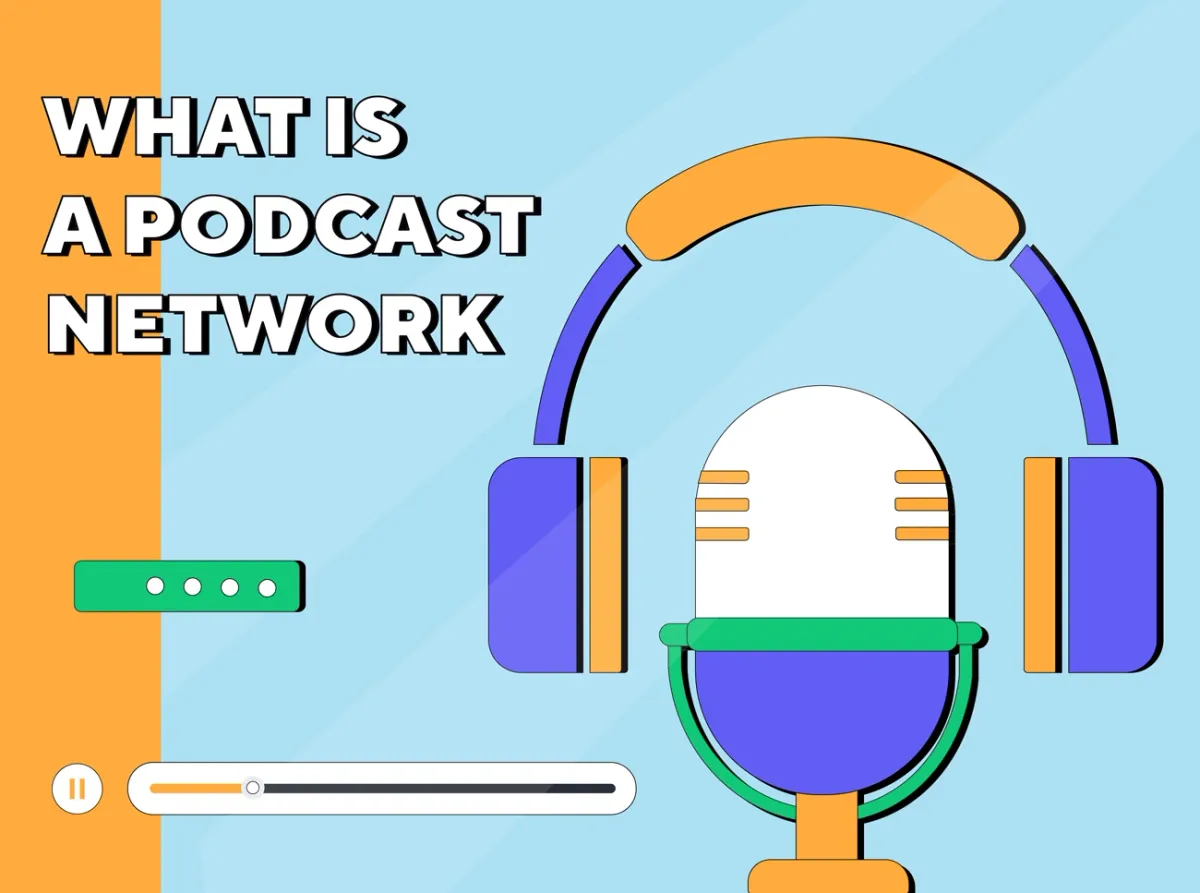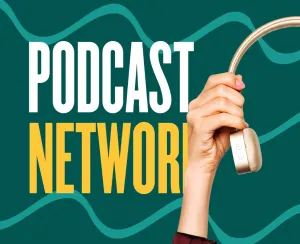We all know that we’re more effective when we work together. Even outside of the podcasting community virtual collaboration is on the rise. So perhaps it’s time to consider being a part of a podcast network. You are in two minds, we know. No worries. Let’s shortly review the essentials of podcast networks to make you get to the final decision.
Curtains up! We are starting the show.
How podcast networks operate
When you join a network, your podcast becomes more accessible to advertisers seeking for the ideal show for their campaign. Advertisers can use a network to examine your podcast and choose whether or not to buy ad space.
At first glance, this system appears to be the optimal solution for podcasters trying to engage with more brands, but before signing any contracts, it’s critical to review the network’s advertising plan.
A note from Podcastle:
The CPM approach of podcast advertising, which pays podcasters a set amount per 1,000 impressions, is commonly used by podcast communities. Typically, a business may purchase three spots, each with a different duration, to be placed at various intervals throughout the show.
- Pre-roll (20-30 seconds) at $6-20 CPM
- Mid-roll (60 seconds) at $11-25 CPM
- Post-roll (10 seconds) at $4-15 CPM
Various Types of Podcast Networks
Although podcast networks are quite similar, there are some key differences to be aware of when looking for a network for your program.
Creative control – Accessing a podcasting network also entails adhering to network restrictions, which are occasionally influenced by associated ad firms. This means the network may reserve the right to disapprove certain of your creative choices and request revisions.
Funding — Because some podcasting networks are exposed to venture capital funds, they can provide additional assistance to creators. This can be done through a specialized producer who will assist you with the planning and editing of your show. You may also be provided assistance in developing a separate podcasting website inside the network, as well as work on your logo and visuals.
Partnerships – some networks have partnership agreements with publishing houses. Podcasters who seek to establish themselves as specialists in their field may find this option appealing. They can profit from such a holistic strategy in the long run. It can be a better collaboration format compared to a VC-funded network focused solely on scalability.
The Pros and Cons of Joining a Podcast Network

#1: Cross-promotion
When you join a podcasting network, you can engage with other podcasters who have diverse audiences, making cross-promotion even more successful. If someone is already watching a show on your network and a host recommends your podcast, they are more likely to have a look at yours.
#2: Sponsorships
If you’re a part of a podcast network, keep in mind that your audience is a part of the same collective audience as everyone else’s. This means that you have access to sponsorships that would be impossible to obtain on your own, giving you a greater chance to grow your podcast audience.
You’ll have to split the money you make with the network, but you won’t be on your own in terms of sponsorships. The sponsorships will be handled by the network, enabling you to focus on the content of your show.
#3: Personal growth and development
This is less tangible and difficult to quantify, yet worthwhile to contemplate.
- Connecting to other podcasters and joining a collective might be beneficial for long-term personal development.
- You will also be able to share your expertise and increase your horizons on how to better your show.
#4: Technical benefits
As the market for podcasting solutions evolves and becomes more diverse, some of the stated technical benefits can be a good reason to join a network.
- Free hosting – this may or may not be the case.
- A dedicated website – to increase brand recognition;
- A redesigned logo – to increase brand recognition, emphasize the quality, and demonstrate the theme
- Assigned producer – this can include providing feedback and suggestions for your content, as well as monitoring your show’s compliance with network guidelines
What are the prerequisites for becoming a member of a podcasting network?
Here is the thing; obviously podcast networks are looking for big shows that can consistently produce tens of thousands of downloads per episode. However, if you have a smaller program, you can still partake.
Just keep in mind that if you have a larger show, you will be able to secure a better rate. Advertisers who want to reach bigger audiences and buy commercials on a massive scale are delegating this quest to large shows. On the other hand, collaborating with a large number of less popular shows and focusing on host-read ads does not provide an adequate quantity of ad space.
So here are some of the requirements you can come across when negotiating to enter a podcasting network:
- Certain number of downloads per episode
- Publishing frequency — the majority of networks will search for series that have at least one episode per week.
- Revenue sharing — You must give a specific percentage of your earned revenue as revenue sharing.
- Some amount of control — the podcast network needs to make sure it isn’t breaking any ad partner’s rules.
- Creative control — Networks may need to evaluate and approve scripts on a rare occasion.
- Cross-promotion — if your show is successful and well-liked, you may be asked to advertise other shows on the network.
By the end of the day, podcast networks can assist you in monetizing your podcast without requiring you to put in a lot of extra effort. You can delegate responsibility for promotions and sponsorship arrangements to the network. You’ll have more time to do what you do best: create fantastic episodes.







